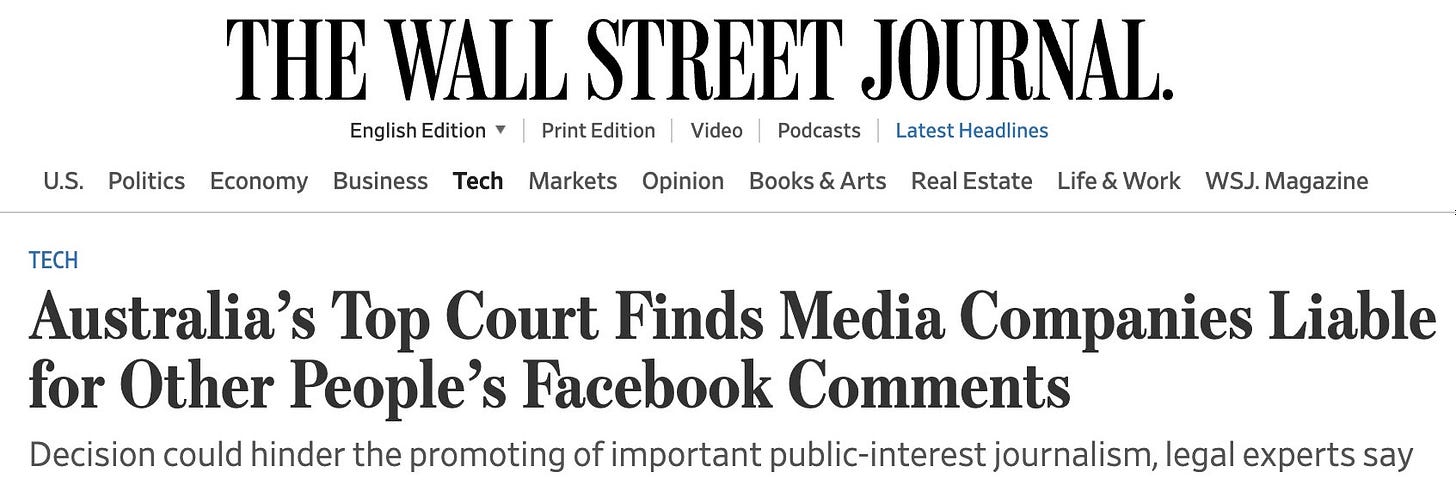In my newsletter last week I mentioned the Australian High Court decision in the Dylan Voller defamation case, and how it was freaking a lot of people out. The High Court found that three news organisations being sued for defamation were in fact the publishers of comments attached to their posts in Facebook, despite the fact they didn’t write them, approve them, or possibly even know of their existence.
News of the decision has spread all over the world. In many cases, it is being taken as evidence of the bizarre state of things digital in the Antipodes: first the government legislates to force a transfer of cash from Facebook and Google to news, then the nation’s highest court rules that you are responsible for other peoples’ comments on social media.
In the newsletter I said the High Court justices “got it wrong”. Well, I discovered it’s not as simple as that.
The first step for me was to read the 71-page decision, and the second was to speak to someone knowledgeable. The good news is that Australia’s legal destiny is not in the hands of fools: even in my layman’s reading of the case, I could see that the decision to hold the three news companies responsible was historically consistent (they are Sky News, News Corp, and Fairfax). That being said, there were two dissenting judges, and the dissenters’ arguments were convincing.
Sign up for the Crawford media newsletter here.
I wrote about the matter for The Spinoff, and concluded that the majority High Court view made legal sense but not practical sense. The problem lies not with the High Court so much as with defamation law itself. In both Australia and New Zealand it’s horrible, used by entitled people to intimidate the media and suppress information, knowing that to defend a case is beyond the budget of many operators.
Now the risk of being sued for defamation is spilling out of news media and into the wider public, as everyone creates content for digital networks. There is nothing inherent in the High Court ruling that protects everyday users from being the “publishers” of other people’s comments on their posts. Ignorance and lack of nasty intention are no defence. To quote the majority decision:
“A publisher’s liability does not depend upon their knowledge of the defamatory matter which is being communicated or their intention to communicate it.”
The good news is that defamation law is currently being reformed in Australia, via legislation, and there have already been big changes for the better. In most Australian states there is now a protection against trivial claims and a “public interest” defence for serious journalism. The issue of responsibility for third-party content on digital networks will be covered in the next round of reform, which is happening right now.
Hannah Marshall, a partner at Marque Lawyers in Sydney, provided me with a calm and extremely knowledgeable take on the High Court decision. If you are publishing anything, you need to listen to this week’s podcast and get Marshall’s insights into the implications of the decision. She describes Australia as “the defamation capital of the world”, which gives you an indication of why you should be paying attention.


